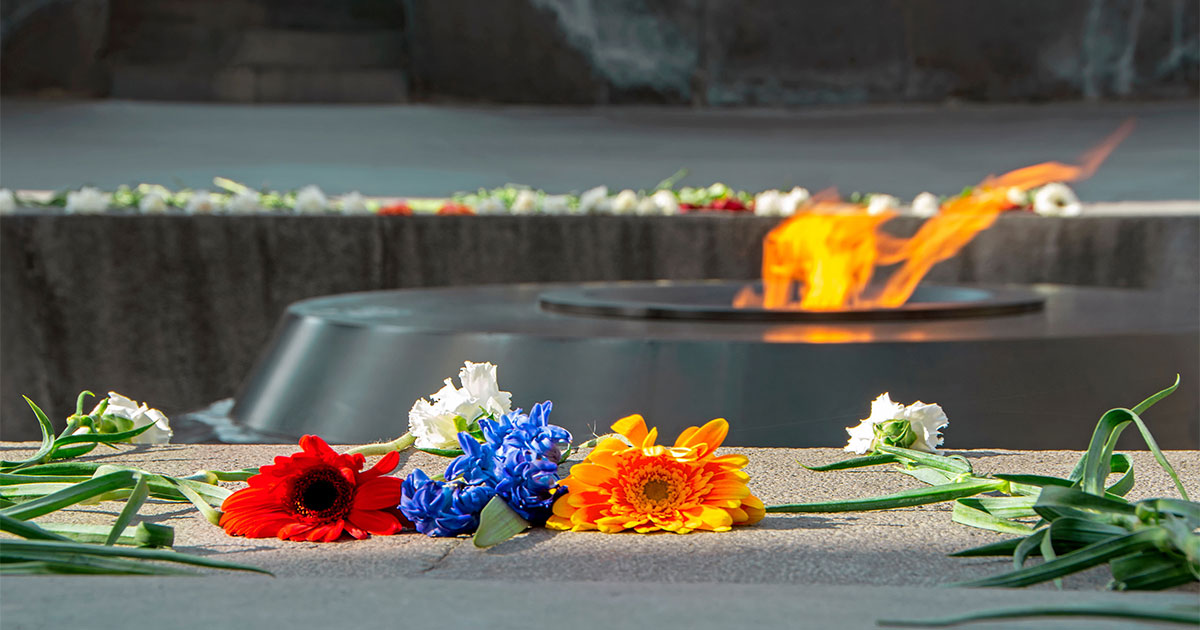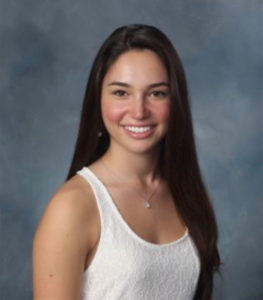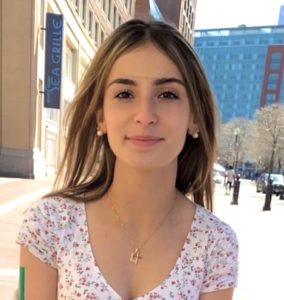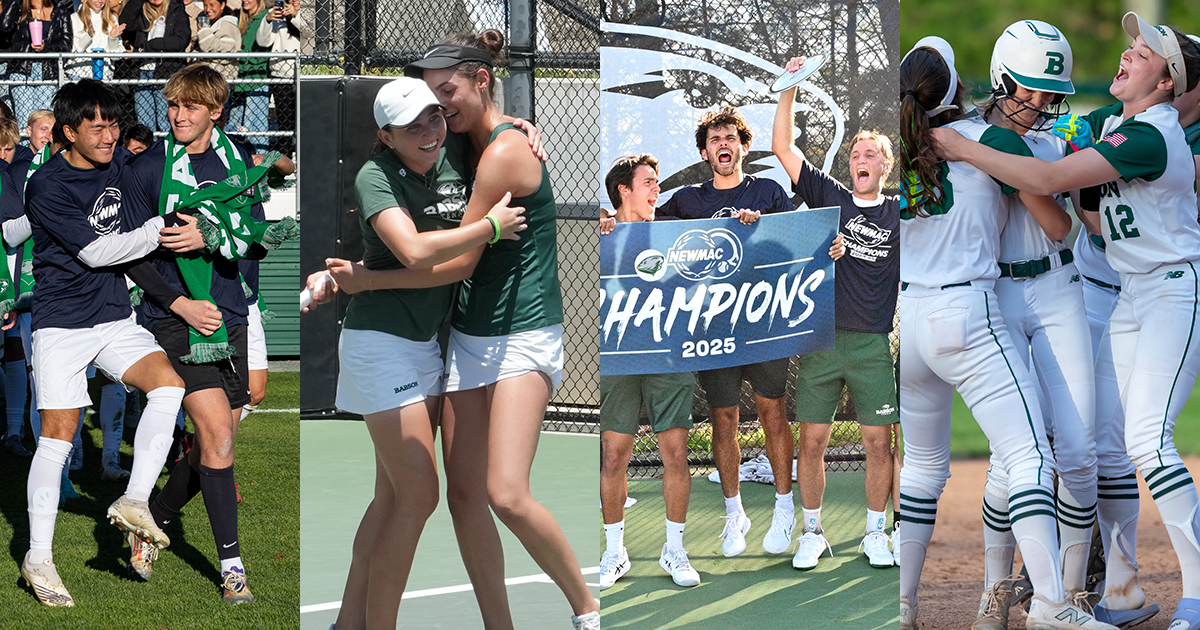Keeping Armenian History Alive

To remember history, especially the dark and troubling moments from the past, is a responsibility. The weight of that responsibility, says Eileen Melkonian ’23, falls particularly hard on Armenians.
“If history is forgotten, it is doomed to be repeated again,” Melkonian says.
Making sure the Armenian genocide, one of the most horrific events of the 20th century, is not forgotten is important to Armenians such as Melkonian. As many as 1.2 million people lost their lives, and many thousands of others were exiled, in a systematic campaign of killing and deportation that began in 1915 by the old Ottoman Empire.
Today, the horrors of the genocide can often feel lost to time and overshadowed by the other genocides that have tragically followed, and Turkey, the modern-day successor to the Ottoman Empire, refuses to recognize what happened. The United States only formally recognized the Armenian genocide last year.
The genocide, however, is not something Armenians will allow to fade into the past. “God forbid, no one will know our history,” Melkonian says. “We spread as much information as we can. Every Armenian has a duty to do this. They have a duty to spread awareness on behalf of the culture.”

Melkonian and her friend, Nairi Enright ’24, are the co-presidents and co-founders of the Armenian Student Association at Babson. The small but active student group, which has roughly 10 members, is, in part, a social organization. It organizes events and networks with other Armenian student groups. “It’s always great to meet other Armenians,” Melkonian says. “There are not a lot of Armenians in the world, unfortunately.”
But, raising awareness about Armenian culture and history, particularly the genocide, is a main concern, one that has led Melkonian and Enright to petition Babson to include more about the genocide in appropriate College coursework.
“It leaves you with a sick feeling that your history is being left out. It’s upsetting. It’s sad. You don’t understand why,” Enright says. “We want to limit that. The genocide is a big part of history. People need to be educated about this.”
An Obligation
The importance of Armenian culture and history was instilled in Melkonian and Enright as they were growing up. Melkonian was born in the U.S. to Armenian immigrants, her mother a refugee from Baku, the capital of Azerbaijan, a country where a number of anti-Armenian attacks broke out in the late 1980s. In 1990, in what’s known as the Baku pogroms, seven days of attacks were aimed at Baku’s Armenian residents, essentially clearing them from the city. “She came here (to the U.S.), with $10 in her pocket and started a life,” Melkonian says.
Melkonian grew up in a traditional household eating lots of Armenian food. Her parents were strict, a direct result of their experiences. “I was watched over very closely,” she says. “My parents went through a lot of hardships. The mentality they came to America with was, you always have to be safe. They saw the world by what events happened to Armenians back then.”

Learning that history left an impression on Melkonian. “That inspired me to fight for Armenian rights and education,” she says.
Enright was born in Armenia and immigrated to the U.S. as a baby. Her grandmother taught her how to cook Armenian foods, and her grandfather founded the Armenian elementary school she attended. From an early age, Enright attended genocide remembrance events. Held annually on April 24, those events typically bring together the entire Armenian community. “We march together,” Enright says. “It’s really powerful and really emotional.”
Enright learned that being an Armenian came with an obligation. “If you don’t know the history and the culture, then who will keep the language alive? Who will keep Armenia alive?” she says. “Growing up, it was stressed to me to have ties to Armenian family, to always speak the language.”
In the Classroom
Enright and Melkonian first met while attending Lexington High School in suburban Boston, and then reconnected at Babson, where they carried with them a need to tell the Armenian story.
That story, unfortunately, can sometimes seem missing. At Babson, Melkonian grew frustrated when the Armenian genocide wasn’t mentioned in several courses (in history, human rights, and law) where she felt it was a natural fit. “Those topics are relevant when talking about the Armenian genocide,” she says. “I was upset and disappointed. I didn’t know what to do.”
“Babson is making a big effort to support us and make our voices heard.”
Eileen Melkonian ’23
Sharing her concerns with Enright, the two then reached out to Babson administration and eventually met with Lawrence P. Ward, vice president and dean of campus life. “He took the time,” Enright says. “I can’t begin to describe how helpful he was.”
Ward connected Enright and Melkonian to professors and leaders on campus, which allowed them to offer input on how the genocide can be presented in the classroom. Enright and Melkonian already have spoken about the Armenian genocide before a class studying the Cambodian genocide of the 1970s, and they partnered with the College’s Office of Religious and Spiritual Life to put on a community peace circle this past April 24. “Babson is making a big effort to support us and make our voices heard,” Melkonian says.
Melkonian hopes that Armenian students at other colleges will attempt similar actions. “People aren’t as educated about it as other genocides. That is disappointing,” she says. “I hope Armenian students get inspired to bring this to light at their own schools.”
Posted in Community






